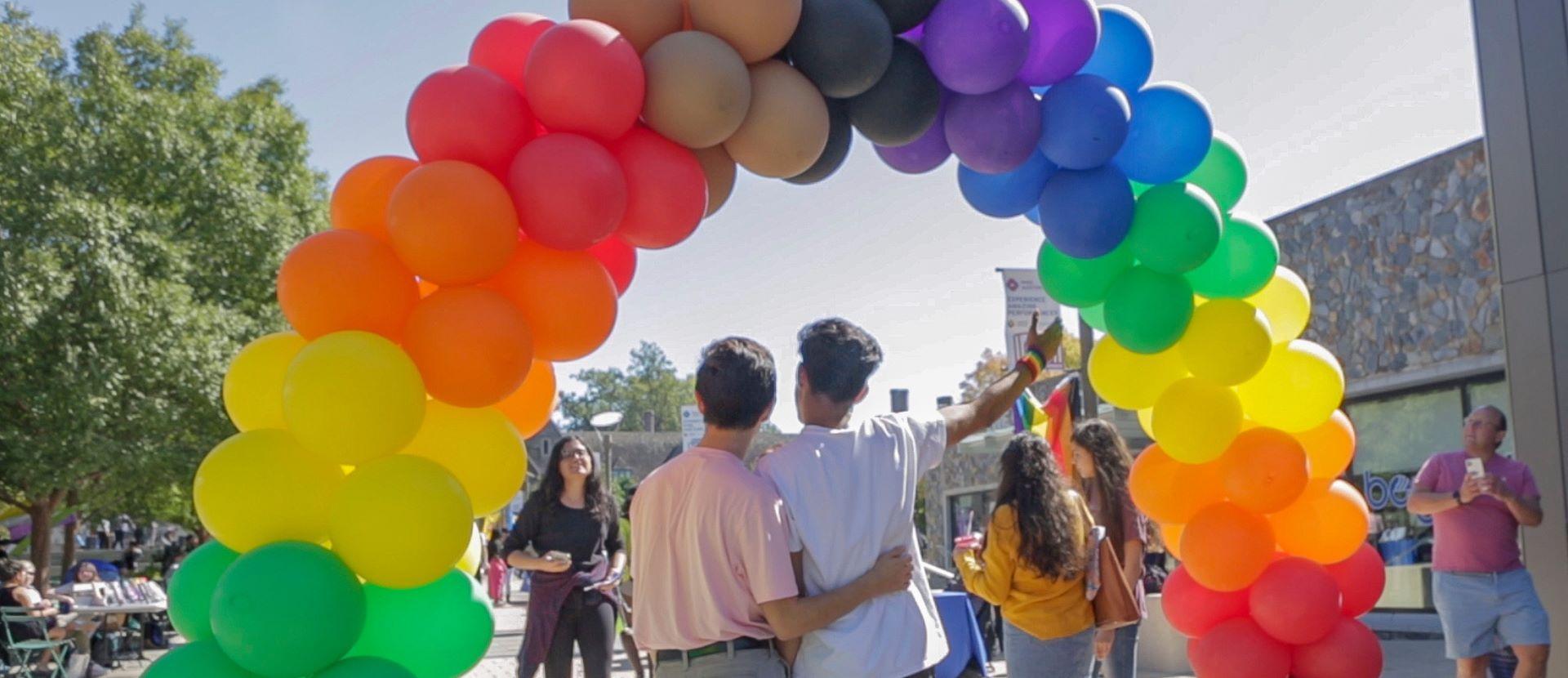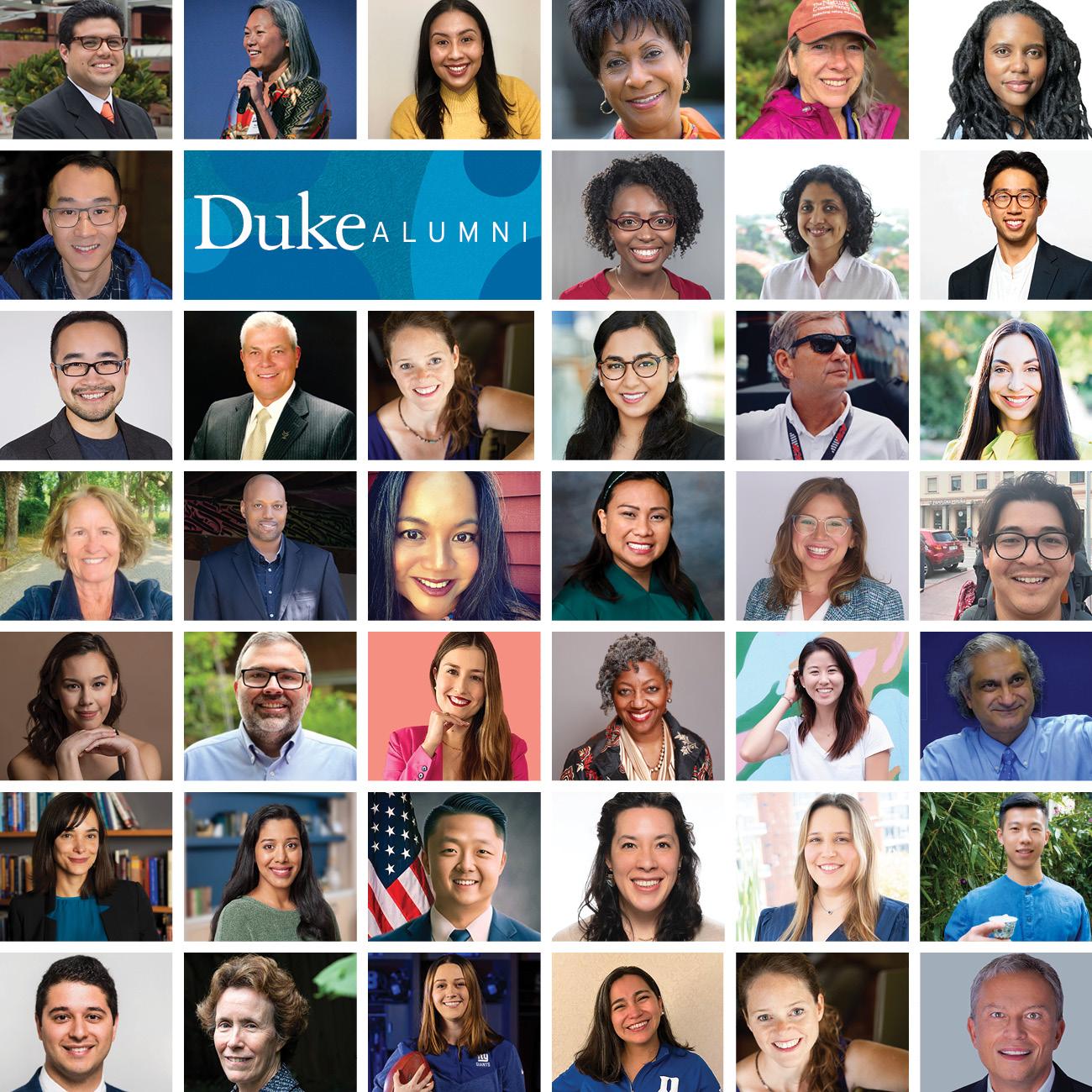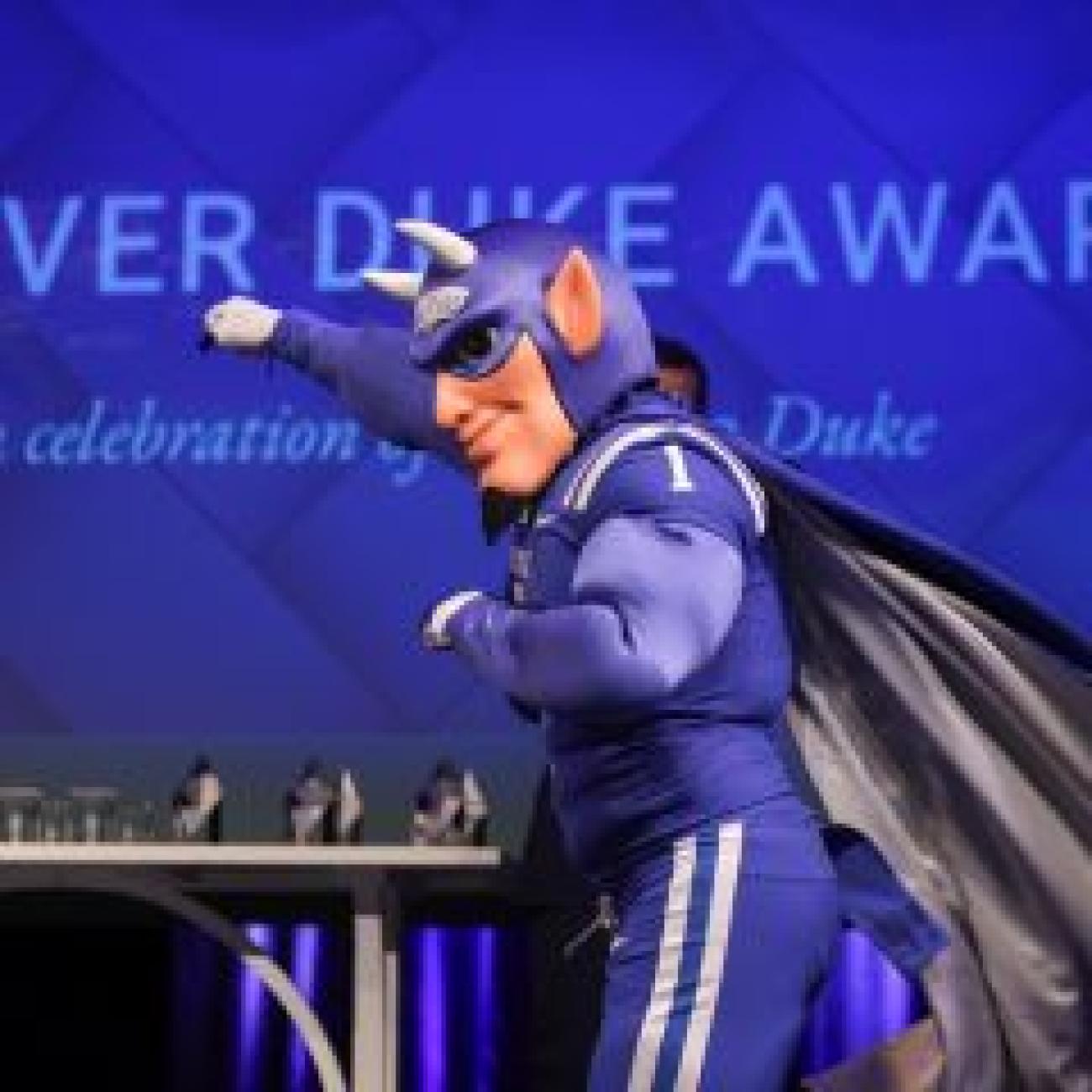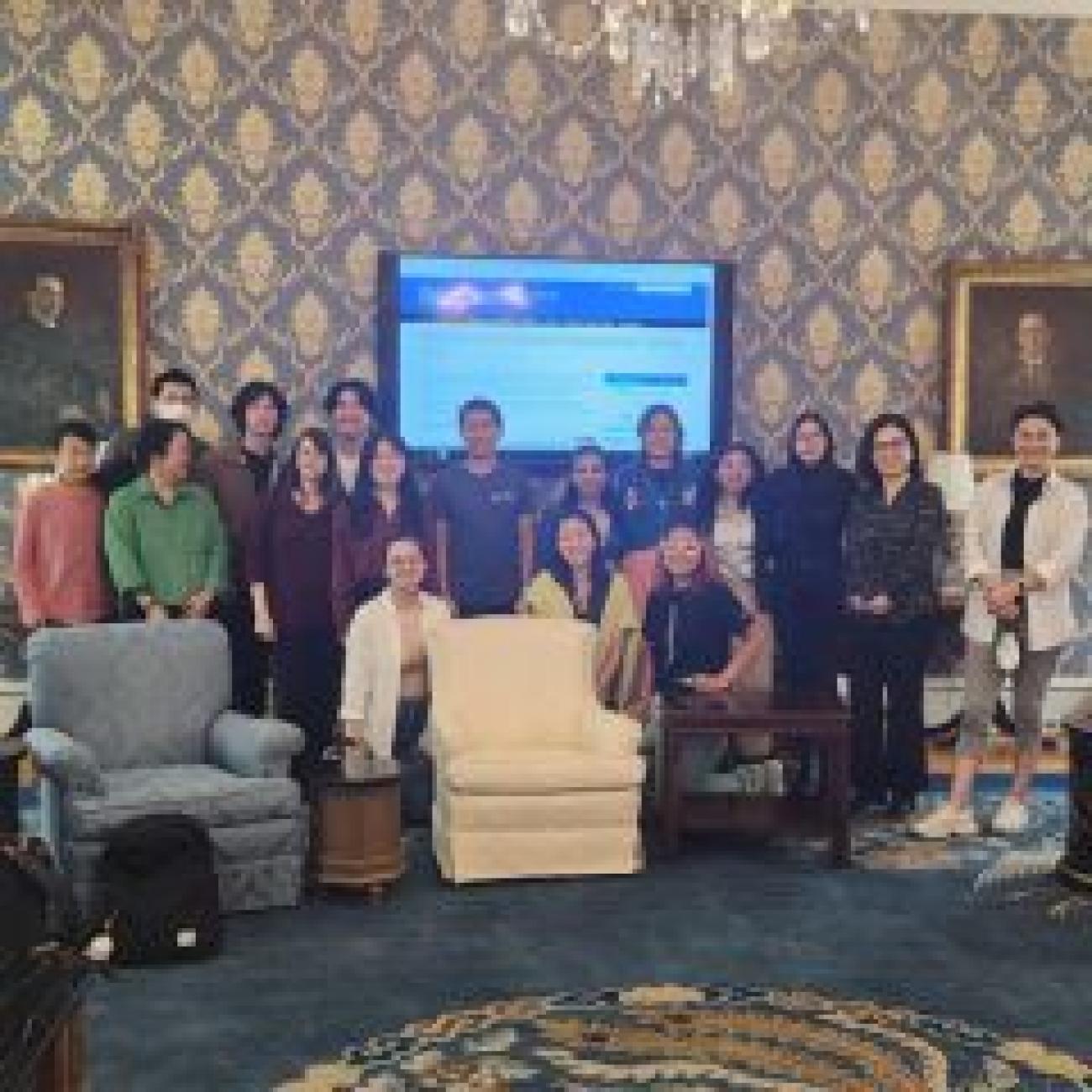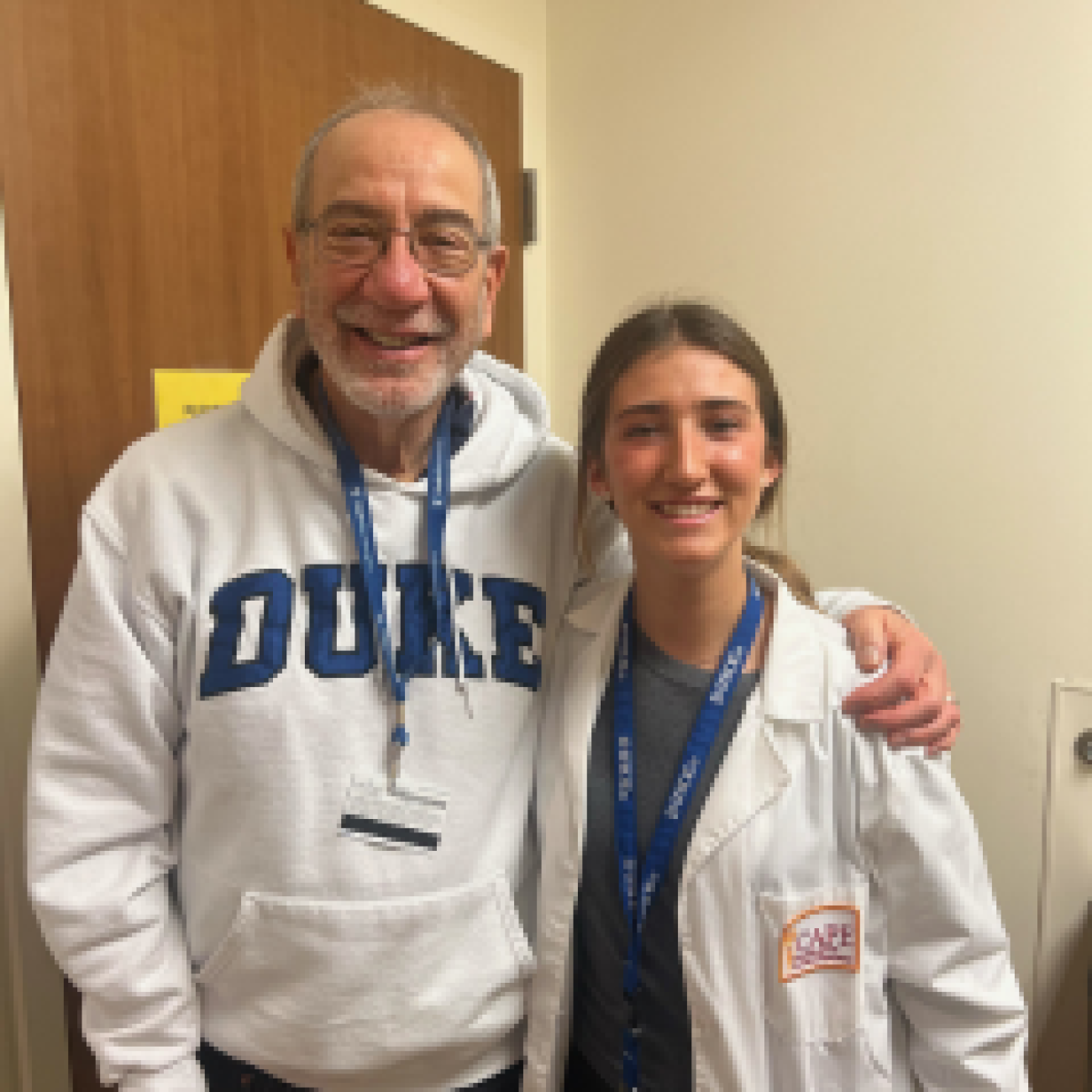Your Community Right Here
Founded in 2009, the Duke LGBTQ+ Network alum group reflects on 15 years of advocacy and community.
The beginning of the Duke LGBTQ+ Network began with barely enough members to call a group: Just three Blue Devils in New York City with a vision for community.
Together, Thomas Clark ’69, Kyle Knight ’08, and Maneesh Goyal ’97 wanted to create belonging among lesbian, gay, bisexual, transgender and queer alums and their allies.
Today, that small group has amassed more than 2,000 fellow alums who are actively engaged in creating community throughout the Duke world and leading key social and educational programming.
Advocates for the LGBTQ+ community at Duke certainly precede the formal group in 2009, with Blue Devils over the decades making strides in advocating for representation and full inclusion in the Duke community.
As the LGBTQ+ Network celebrates 15 years of its alum group at Duke, members share their own personal reflections.
Thomas Clark ’69 (1960s) (he/him)
In Thomas Clark’s Duke days of the 1960s, exploring identity was difficult, to say the least.
“There wasn’t accessible education, media representation or a framework about people who were LGBTQ+,” he says. “So, anyone who [was exploring identity] felt like they were the only one.”
As a student from a small Appalachian high school in Kentucky, Clark remembers his experience as a “naïve” one when it came to understanding his orientation—both growing up and at Duke. And after graduation, it was challenging to find a dedicated group from Duke facing similar experiences.
During Pride Month in New York City, where Clark settled after graduation and began to put down new roots, an idea came to him: Starting a group that mobilized fellow Blue Devils who, like him, were part of the LGBTQ+ community.
“It took a moment to get started but just took off once it got going,” he says.
Clark went on to advocate for change through many of his Duke roles. He served as a Duke trustee and as the president of the Duke Alumni Association. For 59 of Duke’s 100 years, Clark—who now is 76—has served on and led many Duke boards and given back to the Duke community through his volunteer service.
Today, with nearly 20% of Duke students identifying within the LGBTQ+ community, the importance of the LGBTQ+ Network has become increasingly relevant. For the past 15 years, leaders have developed strategic plans to ensure the structure of the group can continue to grow, create connections and provide resources. Members can utilize the group as platform to advocate for the university’s support.
“Hopefully one day groups like ours will outlive the need for advocacy for full inclusion.” Clark says.
“My hope is one day we will be accepted as part of the whole in all of society—that it’s not viewed as a problem and only a distinguishing feature.”
Katherine Turner ’90 (1980s-90s) (she/elle/ella)
As an adjunct professor at the University of North Carolina at Chapel Hill and founder of her consulting firm, Global Citizen, LLC, Katherine Turner has dedicated much of her life to the intersection of sexuality and public health.
As a Duke student, Turner says she didn’t fully recognize her identity a queer lesbian, but her Duke experience helped form the basis for better understanding her sexuality. During her undergraduate experience, she was an advocate feminism and gender sexuality, soon turning her passion into expertise.
Now serving on the LGBTQ+ Network board, alum volunteers who lead the group, she hopes to create an environment where regardless of sexuality, orientation or background, members are respected.
From making strides in gender sexuality and reproductive rights to continuing to promote blended affinity group events, Turner says the LGBTQ+ Network understands the power of working together to promote change—especially for topics that affect multiple groups such as racial inequities and socioeconomic barriers.
“Intersectionality across Duke’s more than a dozen affinity groups is so important,” Turner says. “None of us fit into one box.”
Today, after seven years of leadership, Turner emphasizes the best way to get involved with their work is to simply join. There are opportunities for programs and space for volunteer and networking events where anyone can start to find their community, she says.
“Do not be afraid to reach out,” she says.
Arjun Daga M.B.A.’16 (2010s) (he/him)
When Arjun Daga stepped foot into Duke’s Fuqua School of Business, he immediately knew he made the right choice.
Greeted with dozens of flags lining the ceiling like a floating hallway, Daga looked up and his eyes met the U.S. flag. He had just moved from Singapore and was worried about being in a different country. Then, he noticed the Pride flag right behind it. That memory sticks with him years later.
“It really dug deep,” Daga smiles. “That moment showed me that Duke values our pride, and I knew I was in the right place.”
For the next two years, Daga was immersed in his work with FuquaPride, a LGBTQ+ student- and ally-led group. From hosting Pride events to leading committees, he says he found a community. After graduating, Daga relocated to New York City without knowing anyone in the area. Once again in a new city, he searched for community.
Welcomed by Duke’s LGBTQ+ Network, Daga quickly joined and eventually became the group’s programming co-chair.
“I’ve moved to cities not knowing a soul,” he says. “But when I reach out to the Network, I instantly am part of something.”
Today, Daga is most excited about the continued growth of the LGBTQ+ Network and stresses the importance feeling heard in a community—not only for the next 15 years, but for all the years ahead.
“Joining the Network is not only about feeling supported,” Daga stresses. “It’s about the close friendships and people who are there for you.”







